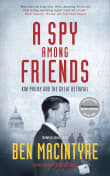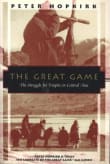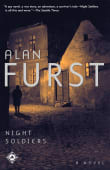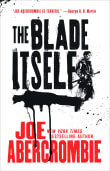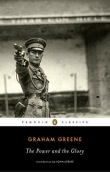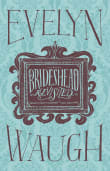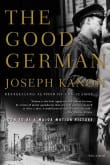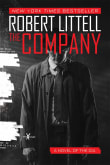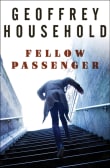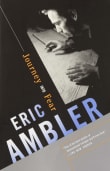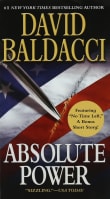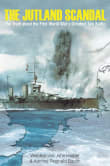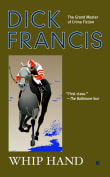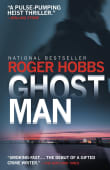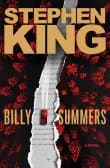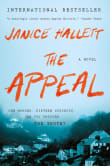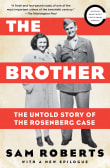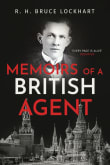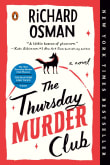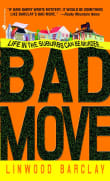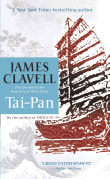Tinker, Tailor, Soldier, Spy
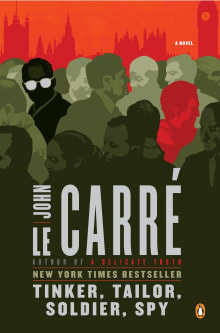
Book description
From the New York Times bestselling author of A Legacy of Spies.
The man he knew as "Control" is dead, and the young Turks who forced him out now run the Circus. But George Smiley isn't quite ready for retirement-especially when a pretty, would-be defector surfaces with a shocking accusation:…
Why read it?
13 authors picked Tinker, Tailor, Soldier, Spy as one of their favorite books. Why do they recommend it?

George Smiley is a most unlikely hero for a spy thriller. He’s old, tired, and just wants to be left with his books and his research. He wears big, comical glasses, and his wife, the lovely Lady Anne, refers to him as her “Toad.” He doesn’t look like a spy at all.
George is old-school—careful, meticulous, and precise. In this book, we are gifted with an insider's view of a gimlet mind as he sifts through the traces of all that’s been buried, in pursuit, not only of the truth but of the foul trick that has turned the British…
From Mike's list on characters that shine through.

This book made me fall in love with John le Carre’s writing. The deliciously complex and layered plot held my full attention to the end. He is now one of my favorite authors.
I’m a fan of stories that focus on both plot and character. George Smiley is a substantial character, unusual for an espionage thriller. He is complex, deep, honorable, persistent, and very human. He feels very real to me.
John le Carre doesn’t write high-action novels, and that’s just the way I like it. I enjoy slow-burn stories and tales that unfold gently while keeping me intrigued. With…
From H.R.'s list on complex and thought-provoking thrillers.

This is the book that introduced me to the spy thriller genre. And what a place to start! It is masterfully plotted with a twist that is still unparalleled in the history of spy fiction. Combine the masterful plot with the fully formed characters running around the Cold War and Europe, and it is easy to see why this is considered Le Carre’s masterpiece. It is a book that I continually return to.
From Ryan's list on shed light on the world of intelligence agencies.
If you love Tinker, Tailor, Soldier, Spy...

I love the sense of intimacy in this book.
The characters are flawed and detailed against the backdrop of London and Great Britain. It is a classic of the genre and really takes you back to the pre-internet and pre-fall of the USSR. It really captures what it was like to live in those times.
From Eric's list on espionage and intrigue in Great Britain.

I first saw the 1979 mini-series Tinker, Tailor, Soldier Spy, with Alec Guinness' definitive portrayal of George Smiley when it first aired on PBS. I was hooked, but I didn't immediately read the book.
Being somewhat obsessive, when I learned the George Smiley character appears in several other Le Carre books, I had to read them in chronological order, starting with Call for the Dead. Good as the others were, especially Smiley's People, this book is Le Carre's masterpiece.
Le Carre often said that he created George Smiley as a reaction to the very unrealistic portrayal of…
From Leslie's list on novels that have great screen or TV adaptations.

I didn’t think Le Carré was for me, somehow – the world of ‘proper’ spies seemed so grim and grey – but I was curious to see why this novel, in particular, has such a lofty reputation. I saw all right. My god, it’s good. It’s almost nothing but sad middle-aged men talking quietly in drab offices and houses, and yet it is unremittingly gripping. It is the sort of book that makes you feel you’ve understood a world.
If you love John le Carré...

My personal favorite of LeCarre’s intricate, literate spy thrillers, the novel focuses on George Smiley, a former spymaster.
Smiley is in retirement, enduring the twin disgraces of an unfaithful wife and his dismissal from the security services after one of his spies has been exposed and captured, when he is secretly recruited by a member of the government to pursue a suspected mole inside the spy agency. The depth of the development of Smiley’s character and the intricacy of the plot remain captivating to me.
From Scott's list on thrillers powered by an eccentric hero.

For as long as I can remember, John Le Carre has been one of my literary heroes.
His novels are prime examples of the three pillars on which superior thrillers are built: 1. Plots that are engaging from the first sentence. 2. Complex, unforgettable characters. 3. A sense of authenticity.
This particular book is one of my favorites because it begins a trilogy pitting Le Carre’s most indelible character, George Smiley with his opposite number at Moscow Central.
This iconic model was the inspiration for the two sisters, Evan and Bobbi, who are also pitted against each other on the…
From Eric's list on perfect examples of great thriller writing.

The master of spy novels.
Not your slick James Bond. (Not that isn’t a good read too.) But Tinker, Taylor, Soldier, Spy is grittier.
The author knows of where he speaks, as he was a spy for the British. Anyway, this story takes place back in the cold war era. I found it fascinating.
Who to trust? Who is the good guy? Who is bad? A great read.
From Joan's list on new and not so new murder mystery and mayhem.
If you love Tinker, Tailor, Soldier, Spy...

Probably, you know this book already, it is Le Carré’s imaginative meditation on Kim Philby. The hero of the book, George Smiley, must discover who is the mole at the top of British Intelligence, and the villain he unmasks, Bill Haydon, is like Philby: dashing, debonair, rotten. But this is much more than a retelling of the Philby story. Le Carré is the Charles Dickens of spy novels, especially in this book. If you read only one spy novel, choose this one.
From Jonathan's list on a historian's view about spies.
If you love Tinker, Tailor, Soldier, Spy...
Want books like Tinker, Tailor, Soldier, Spy?
Our community of 12,000+ authors has personally recommended 100 books like Tinker, Tailor, Soldier, Spy.



